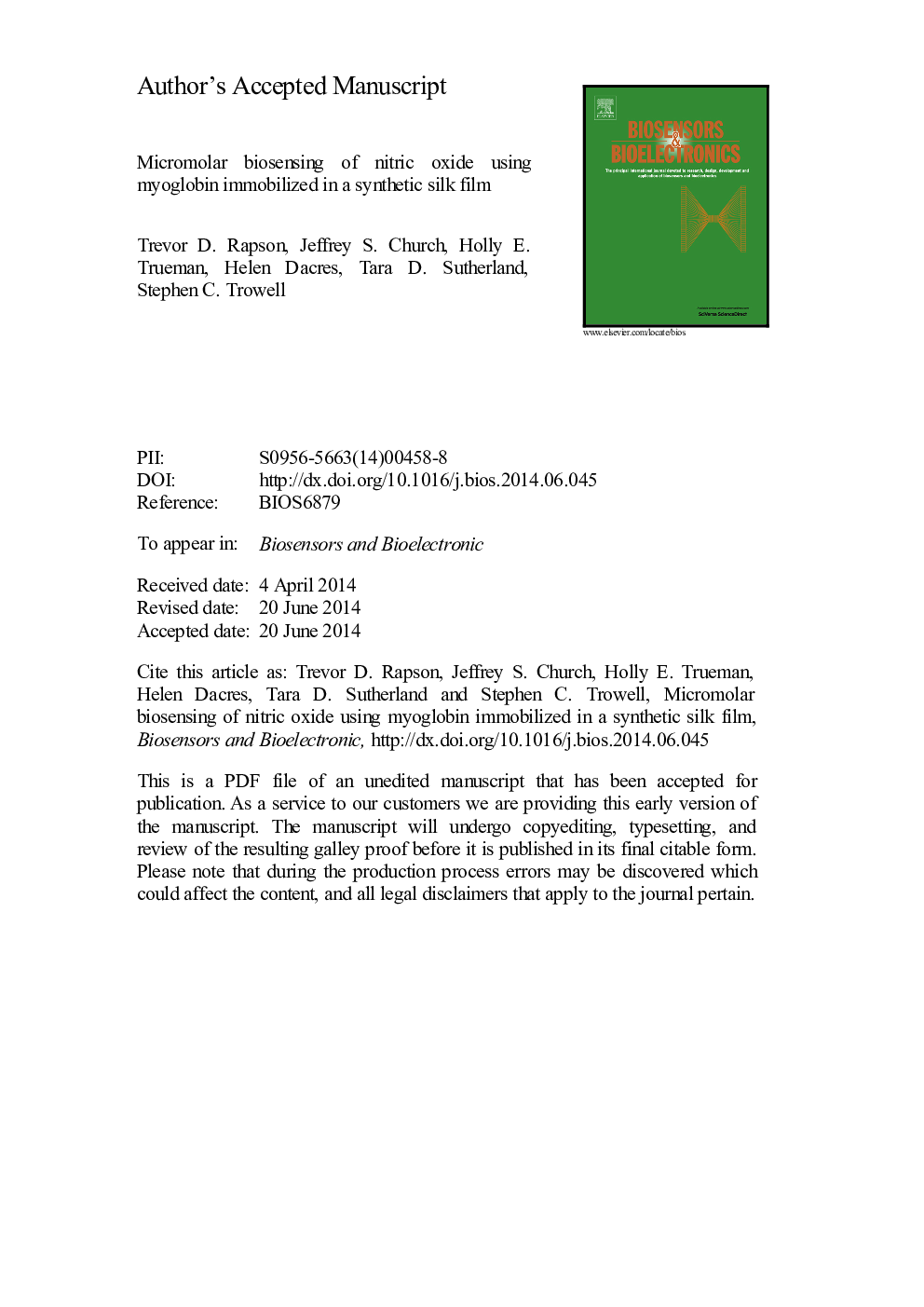| Article ID | Journal | Published Year | Pages | File Type |
|---|---|---|---|---|
| 7233064 | Biosensors and Bioelectronics | 2014 | 19 Pages |
Abstract
In this work we investigate the use of coiled-coil silk proteins, produced in recombinant Escherichia coli, as a new material for immobilizing biosensors. Myoglobin was embedded in transparent honeybee silk protein films. Immobilized myoglobin maintained a high affinity for nitric oxide (KD NO=52 µM) and good sensitivity with a limit of detection of 5 µM. The immobilized myoglobin-silk protein film was stable and could be stored as a dry film at room temperature for at least 60 days. The effect of immobilization on the structure of myoglobin was fully investigated using UV/visible, Fourier Transform Infrared and Raman spectroscopy, which indicated a weakening in the strength of the iron-histidine bond. This study demonstrates that recombinant coiled-coil silk proteins provide a safe and environmentally friendly alternative to sol-gels for stabilizing heme proteins for use as optical biosensors.
Related Topics
Physical Sciences and Engineering
Chemistry
Analytical Chemistry
Authors
Trevor D. Rapson, Jeffrey S. Church, Holly E. Trueman, Helen Dacres, Tara D. Sutherland, Stephen C. Trowell,
